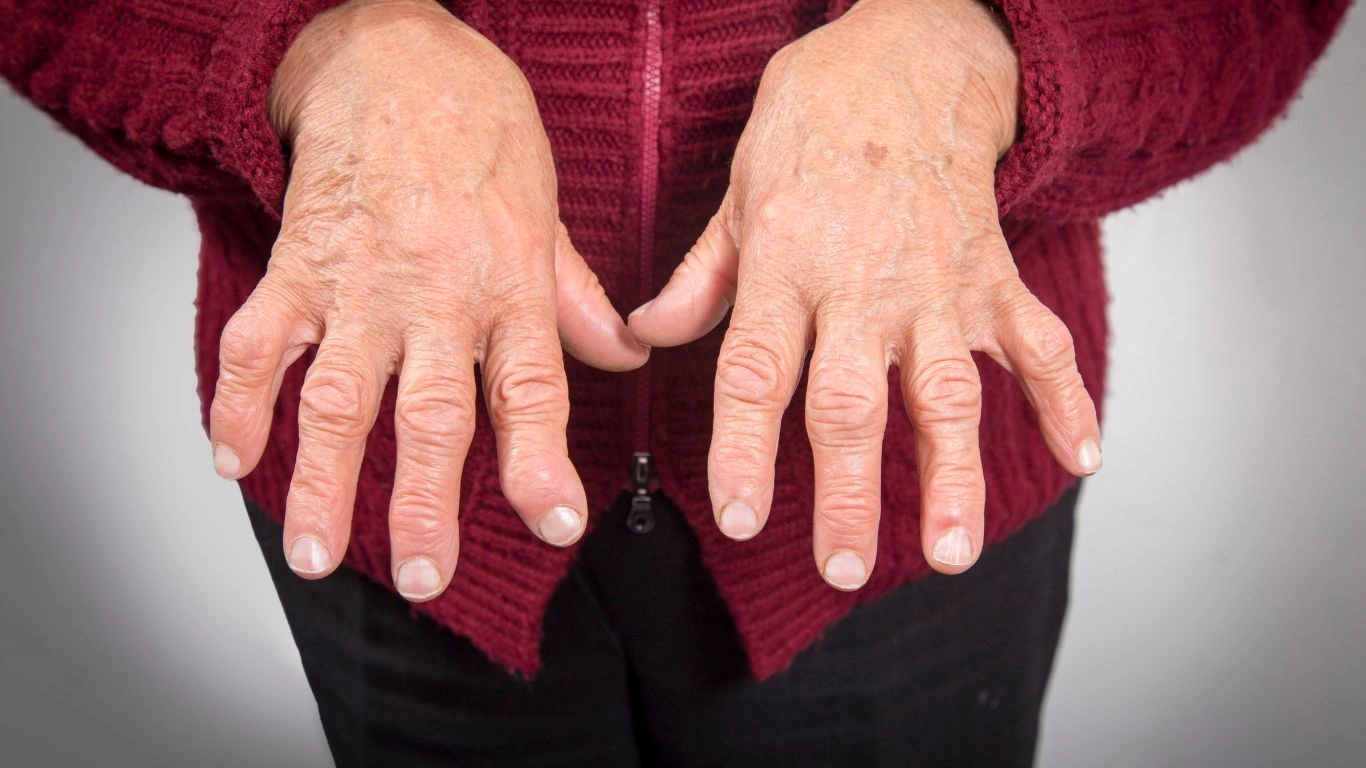The Ultimate Guide to Managing Rheumatoid Arthritis Fatigue Effectively
As someone who’s been working in the field of Rheumatoid Arthritis (RA) for many years, I can tell you firsthand that one of the most overwhelming and challenging aspects of living with RA is dealing with the fatigue that often comes with it. It’s a topic that doesn’t get enough attention, but it’s a real issue that affects people on a daily basis. The link between rheumatoid arthritis and fatigue management is more complex than it might seem at first, and it’s something I’ve come to understand deeply. Fatigue doesn’t just mean feeling tired; it’s a persistent, draining exhaustion that impacts every aspect of life, from work and social interactions to basic self-care. In this post, we’ll take a deeper dive into why fatigue is such a common yet underestimated symptom of RA and how you can manage it better.
Understanding the Link Between Rheumatoid Arthritis and Fatigue
When it comes to RA, most people think of joint pain and stiffness as the primary symptoms. But the fatigue associated with RA can often be even more debilitating than the physical pain. Research shows that up to 80% of people with RA experience significant fatigue. It’s not just a feeling of being tired after a long day; it’s the kind of exhaustion that doesn’t seem to improve with sleep or rest.
So, what’s causing this fatigue? Well, it’s important to understand that rheumatoid arthritis is an autoimmune condition, which means that the body’s immune system mistakenly attacks healthy tissues. This immune response leads to inflammation in the joints, but it also impacts other systems in the body, contributing to feelings of tiredness and malaise. The chronic inflammation associated with RA can disrupt sleep, elevate stress hormones like cortisol, and put your body in a constant state of fight-or-flight, all of which contribute to feelings of fatigue.
The Role of Inflammation in RA Fatigue
One of the primary culprits behind RA-related fatigue is inflammation. When your immune system attacks the synovium (the lining of your joints), it triggers an inflammatory response. This inflammation isn’t just localized to the joints; it spreads throughout the body, affecting various organs and systems. It’s like the body is always on high alert, and that constant state of readiness can wear you out.
Additionally, studies have shown that elevated levels of certain inflammatory markers in the blood, such as C-reactive protein (CRP) and erythrocyte sedimentation rate (ESR), are often linked with more severe fatigue in RA patients. Even though these markers primarily indicate inflammation, they can also give us a clue about the systemic nature of fatigue in this condition.

Sleep Disturbances and Fatigue
Another aspect to consider is the impact that RA has on sleep. Pain, joint stiffness, and other symptoms of RA can make it hard to get a good night’s rest. And as we all know, a poor night’s sleep can make fatigue even worse. When you’re not getting the restorative sleep your body needs, it can create a vicious cycle of worsening fatigue.
Some people with RA experience a phenomenon known as “sleep fragmentation”, where they wake up multiple times during the night, even if they don’t remember doing so. This fragmented sleep prevents the body from entering deeper, more restorative stages of sleep, leaving you feeling tired and unrested when you wake up. As a result, fatigue continues to accumulate, and it becomes harder to manage throughout the day.
The Psychological Toll of RA Fatigue
Beyond the physical aspects of RA fatigue, there’s a psychological component that’s just as important. Living with chronic fatigue can take a toll on mental health. Many of my patients report feelings of frustration, sadness, and even guilt because they feel like they’re unable to keep up with their usual activities or responsibilities. The emotional strain of constantly being tired can lead to anxiety or depression, which only makes fatigue worse.
On top of that, people with RA may feel isolated or misunderstood when they try to explain their fatigue to others. It’s a hidden symptom, and it’s not always visible to those around you, which can lead to feelings of loneliness or lack of support. That’s why it’s crucial to find a community, whether online or in person, where you can share your experiences with others who truly understand.
Practical Tips for Managing Fatigue in RA
So, what can you do to help manage fatigue if you’re dealing with RA? While there’s no one-size-fits-all solution, there are several strategies that I’ve seen work for many of my patients. I want to share a few of these tips that could make a significant difference in your daily life.
1. Prioritize Rest and Sleep Hygiene
When it comes to RA and fatigue, rest is absolutely essential. But it’s not just about getting more sleep—it’s about improving the quality of your sleep. Sleep hygiene plays a huge role in how well you rest, and there are a few things you can do to improve it:
- Stick to a routine: Go to bed and wake up at the same time every day, even on weekends.
- Create a relaxing bedtime routine: Activities like reading or taking a warm bath can help signal to your body that it’s time to wind down.
- Make your bedroom a sleep-friendly environment: Keep the room dark, quiet, and cool to promote deeper sleep.
For some people with RA, taking short naps during the day can be helpful, but it’s important not to nap for too long, as it can interfere with your nighttime sleep. Try to keep naps under 30 minutes if possible.

2. Exercise: The Fatigue Paradox
You might be thinking, “How can exercise help with fatigue when I can barely get out of bed?” I hear this from patients all the time. But the truth is, regular physical activity can be one of the most effective ways to combat RA fatigue. It sounds counterintuitive, but moderate exercise actually boosts energy levels by improving circulation, strengthening muscles, and promoting better sleep.
Of course, you don’t need to run marathons or do intense workouts—gentle exercises like walking, swimming, or yoga can do wonders. Start slow, listen to your body, and gradually build up your stamina. Even just a few minutes of movement each day can make a huge difference in how you feel overall.
3. Nutrition: Fueling Your Body for Energy
What you eat plays a big role in how you feel throughout the day. I’ve seen many patients improve their fatigue by making simple dietary changes. Anti-inflammatory foods like fruits, vegetables, and omega-3-rich foods (like fish and flaxseeds) can help reduce the inflammation that contributes to fatigue. In contrast, processed foods, sugars, and refined carbs can exacerbate inflammation and make you feel more sluggish.
Staying hydrated is just as important. Dehydration can make fatigue worse, so aim to drink plenty of water throughout the day to keep your energy levels up.

Managing Stress to Reduce RA Fatigue
Stress is another factor that can significantly impact fatigue in individuals with rheumatoid arthritis. When you’re constantly dealing with the physical pain and limitations of RA, it’s easy for stress to accumulate. Stress can trigger a flare-up of RA symptoms and worsen the fatigue you’re already dealing with. But here’s the thing—stress management doesn’t just help with mental health, it directly impacts your physical well-being too.
Over the years, I’ve seen how stress management techniques can significantly improve the fatigue levels of RA patients. In my experience, managing stress isn’t about eliminating it altogether—because let’s face it, life happens—but about learning how to handle it in a way that minimizes its effect on your body.
Mindfulness and Relaxation Techniques
One of the best ways to combat stress is through mindfulness and relaxation techniques. Practices like meditation, deep breathing, or progressive muscle relaxation can help calm the mind and body. Even if it feels awkward at first, these techniques can bring about lasting results with consistent practice.
Personally, I’ve seen patients benefit from just 10 minutes a day of mindful breathing. It might sound simple, but when you focus on your breath, slow things down, and create space for relaxation, your body can shift out of the constant “fight-or-flight” mode that contributes to both stress and fatigue. The best part? You can do it anytime and anywhere—whether you’re in the middle of a flare-up or just feeling overwhelmed by daily life.
Incorporating Movement for Mental Relief
Exercise, as mentioned earlier, isn’t just about physical health—it has huge mental health benefits too. Physical activity stimulates the release of endorphins, which are chemicals in the brain that act as natural painkillers and mood boosters. It’s like a built-in reward system for your efforts.
Even when you’re feeling too tired, short walks or stretching sessions can release tension and help clear your mind. I’ve worked with patients who initially resisted exercise because they were afraid it would worsen their fatigue, but once they found a routine that worked for them, they experienced less mental strain and more energy overall. If traditional exercise feels too daunting, try things like Tai Chi, which is low-impact and helps you focus on your breathing while moving gently.

Medications and Treatment Options for Managing RA Fatigue
While lifestyle changes are crucial, sometimes they’re just not enough on their own. There’s no shame in relying on medication to help manage fatigue, especially when you’re dealing with a chronic condition like RA. Over the years, I’ve worked with countless patients who’ve found significant relief from RA-related fatigue through proper medication management. Let’s talk about some options that can make a real difference.
Anti-inflammatory Medications
As we’ve discussed earlier, the inflammation caused by RA is one of the primary reasons for fatigue. Anti-inflammatory medications like NSAIDs (Non-Steroidal Anti-Inflammatory Drugs) can help reduce inflammation and, as a result, may improve energy levels. These medications are often the first line of defense in treating RA symptoms, including fatigue.
While NSAIDs are effective for short-term relief, they are not a long-term solution and need to be used under a doctor’s guidance. For those with more severe symptoms, Disease-Modifying Anti-Rheumatic Drugs (DMARDs) or biologics may be prescribed to target the underlying immune system dysfunction and reduce inflammation more effectively.
Fatigue-Specific Medications
In some cases, medications specifically targeting fatigue may be recommended. For instance, low doses of stimulants like modafinil or armodafinil have been used to help improve alertness and reduce excessive daytime sleepiness, though these are typically prescribed when other measures haven’t been enough. Additionally, some antidepressants, which address both mood and energy levels, may be prescribed if fatigue is linked to depression or anxiety.
However, it’s important to remember that the approach to medications is highly individualized. Some patients will respond well to a combination of therapies, while others may need to try several different treatments before finding what works best for them. This is where having a rheumatologist you trust is key—it’s all about fine-tuning your treatment plan to suit your unique needs.

Seeking Support: Community and Counseling
As we’ve seen, fatigue isn’t just a physical symptom—it’s deeply tied to mental health and emotional well-being. That’s why it’s so important to seek support. Whether it’s from friends, family, support groups, or professionals, having a strong support system can make all the difference when managing RA fatigue.
In my experience, many people with RA feel isolated, especially when they’re dealing with the invisible burden of fatigue. If this sounds like you, consider joining an online or in-person support group. It can be incredibly comforting to connect with others who truly understand what you’re going through. These groups provide a sense of community and a safe space to share strategies, tips, and emotional support. You’re not alone in this journey.
Counseling and Cognitive Behavioral Therapy
If you’re finding that fatigue is negatively affecting your mental health—perhaps leading to feelings of depression or anxiety—it might be worth seeking out counseling or therapy. Cognitive Behavioral Therapy (CBT) has been shown to be highly effective for helping individuals cope with chronic conditions like RA. It can help you manage negative thought patterns that may be contributing to your fatigue and teach you healthier ways to deal with stress and frustration.
Sometimes, just having someone to talk to can make a world of difference. And no matter how well you think you’re managing on your own, having professional guidance can bring new perspectives and coping strategies to help you handle RA fatigue in healthier ways.

Understanding the Role of Nutrition in RA Fatigue Management
We’ve talked about sleep, stress management, medications, and support systems, but there’s one more important aspect of managing RA fatigue that I’ve found makes a huge difference—nutrition. When it comes to chronic conditions like rheumatoid arthritis, the foods we eat can either help or hinder our ability to fight fatigue. I can’t emphasize enough how much a well-balanced, anti-inflammatory diet can change how you feel on a day-to-day basis.
Over the years, I’ve worked with countless individuals who’ve reported a marked improvement in their energy levels just by adjusting their diet. RA can cause systemic inflammation, which in turn contributes to fatigue. So, focusing on foods that reduce inflammation is key to fighting RA-related tiredness. And let’s be clear, this isn’t just about avoiding junk food—it’s about fueling your body with the right nutrients to combat fatigue and improve overall well-being.
Anti-Inflammatory Foods: The Power of the Plate
One of the first things I suggest to my patients is to incorporate more anti-inflammatory foods into their diet. These foods can help reduce the inflammatory processes in the body that are contributing to the fatigue and pain associated with RA. The Mediterranean diet is a great example of an anti-inflammatory eating plan, and it includes plenty of:
- Fatty fish (like salmon, mackerel, and sardines) that are rich in omega-3 fatty acids
- Leafy greens (like spinach, kale, and collard greens) that are packed with antioxidants
- Whole grains (like quinoa, brown rice, and oats) that provide steady energy throughout the day
- Berries (like blueberries, strawberries, and raspberries) which are full of vitamins and antioxidants
- Olive oil as a healthy fat source
Incorporating these foods into your daily meals can help reduce inflammation and give you the energy boost you need to tackle the day. And let’s not forget about spices—turmeric and ginger have both been shown to have strong anti-inflammatory properties. They’re easy to add to meals, and a little goes a long way in reducing fatigue.

Foods to Avoid: Reducing Inflammation Through Diet
Just as important as what you eat is what you avoid. There are certain foods that can trigger inflammation and worsen RA symptoms, leading to more fatigue. These include:
- Processed foods like chips, cookies, and fast food, which are high in unhealthy fats and sugars
- Refined carbohydrates like white bread, pasta, and sugary cereals that can spike blood sugar and contribute to inflammation
- Red meat and other fatty meats that can increase inflammation levels in the body
- Artificial additives and preservatives found in many packaged foods
As tempting as they can be, these foods don’t provide the nutrition your body needs and can actively contribute to making you feel more fatigued. For those with RA, eliminating or limiting these foods can have a noticeable impact on your energy levels. It may take some time to adjust, but the results can be well worth it.
When to Seek Professional Help for Fatigue
Despite making all the right lifestyle changes and following a healthy routine, there are times when fatigue just won’t let up. If you’re doing everything you can to manage your RA and still feel exhausted all the time, it might be time to seek help from a healthcare professional.
In my experience, some RA patients find that their fatigue is so overwhelming that it affects their ability to function normally. When fatigue becomes unmanageable and affects your work, relationships, or quality of life, it’s crucial to have a conversation with your doctor. There may be underlying issues like anemia, sleep apnea, depression, or medication side effects that are contributing to your exhaustion. A doctor can run tests, adjust medications, or refer you to a specialist to make sure nothing else is going on.
Rheumatology Visits and Fatigue Evaluation
During your regular rheumatology visits, don’t hesitate to bring up your fatigue levels. Your rheumatologist can help assess the severity of your fatigue, identify potential causes, and tweak your treatment plan if necessary. Sometimes, the right combination of medications, therapies, and lifestyle changes can significantly improve your energy levels.
Additionally, your doctor may recommend seeing a sleep specialist if sleep disturbances are contributing to your fatigue. Addressing issues like sleep apnea or poor sleep hygiene can make a huge difference in managing RA-related exhaustion.

References
For more information on rheumatoid arthritis and managing its symptoms, I recommend visiting reliable health sources such as:
Disclaimer
The information provided in this article is intended for informational purposes only and should not be considered medical advice. Always consult with your healthcare provider before making any changes to your diet, exercise routine, or medication regimen. Individual treatment plans may vary, and only a healthcare professional can provide guidance tailored to your specific needs.

Tarra Nugroho is a dedicated Nurse Practitioner with a strong foundation in family and preventive care. She brings both compassion and clinical expertise to her practice, focusing on patient-centered care and health education. As a contributor to Healthusias.com, Tarra translates medical knowledge into clear, empowering articles on topics like women’s health, chronic disease management, and lifestyle medicine. Her mission is simple: help people feel seen, heard, and informed—both in the clinic and through the content she creates. When she’s not caring for patients, Tarra enjoys weekend hikes, plant-based cooking, and curling up with a good health podcast.







